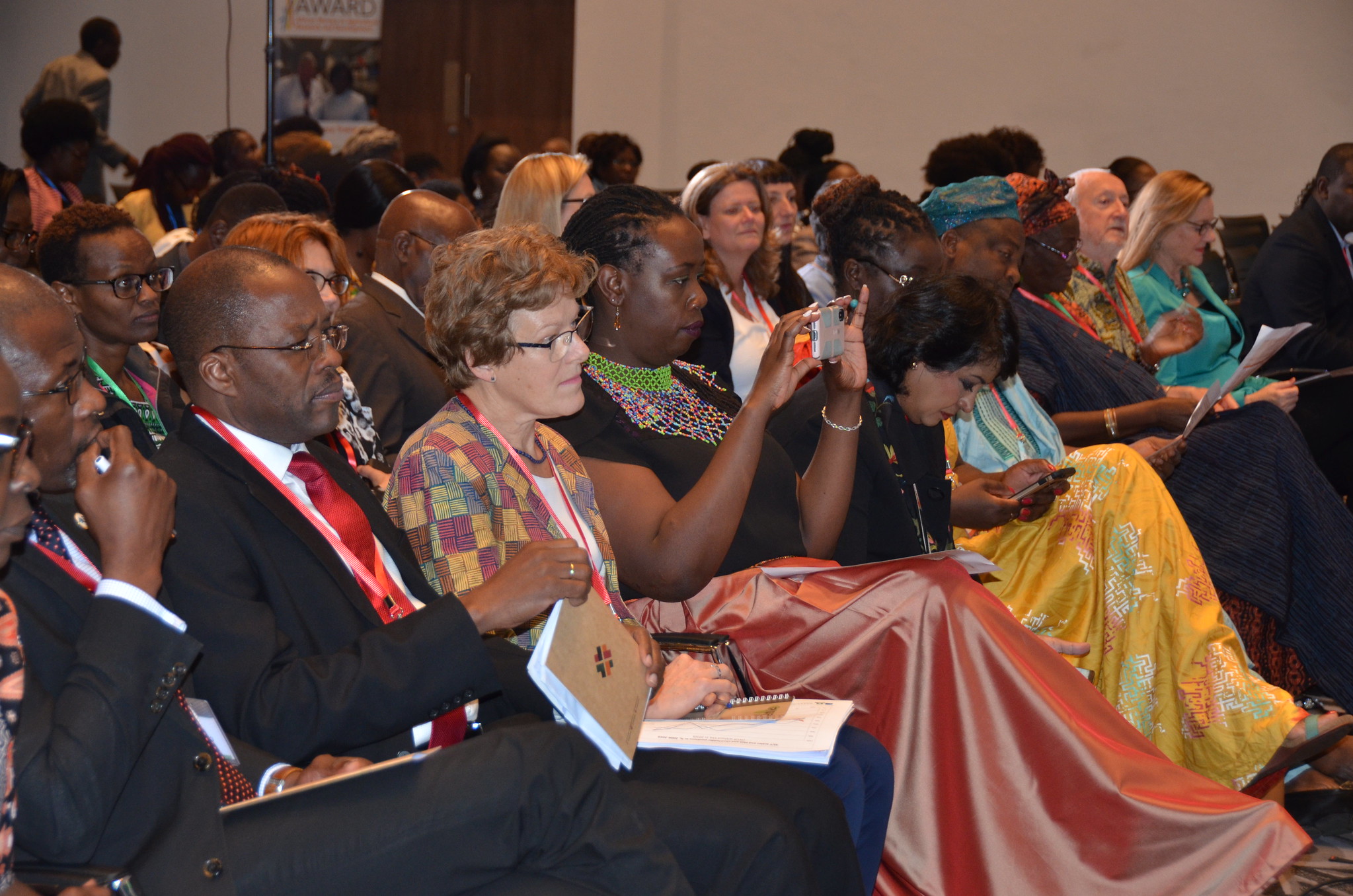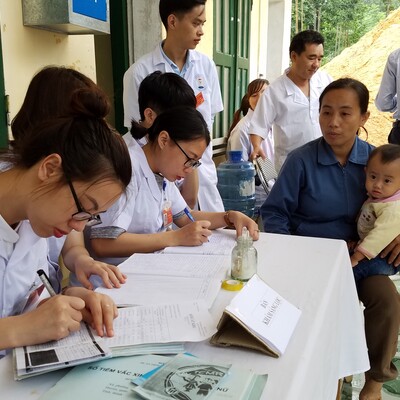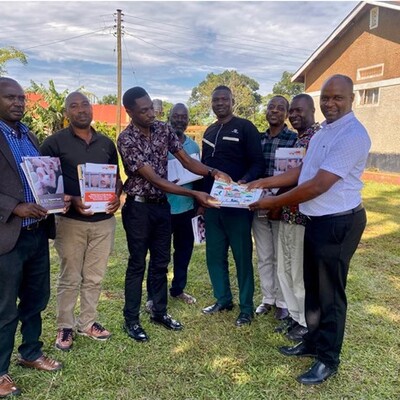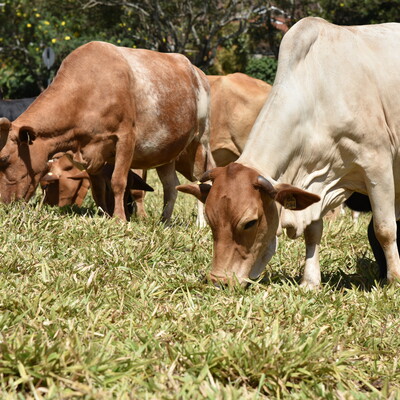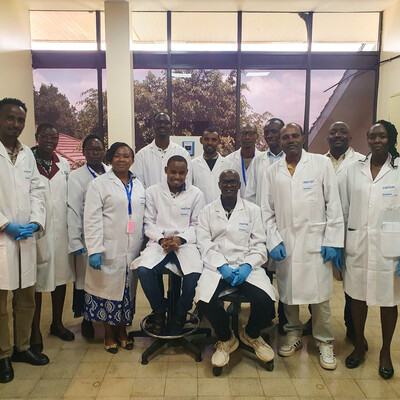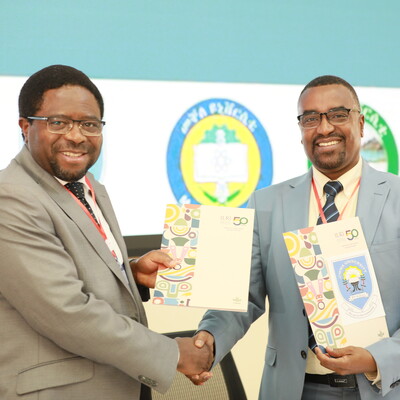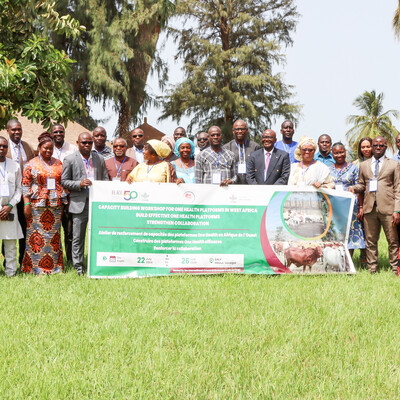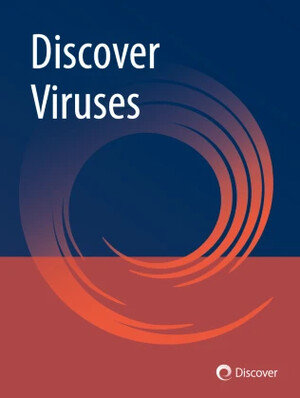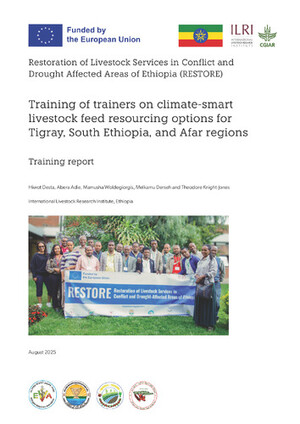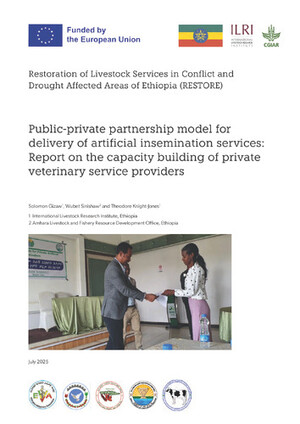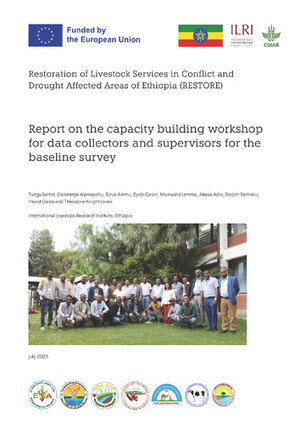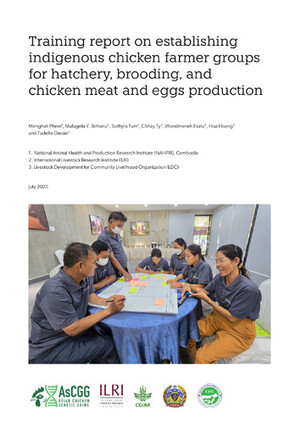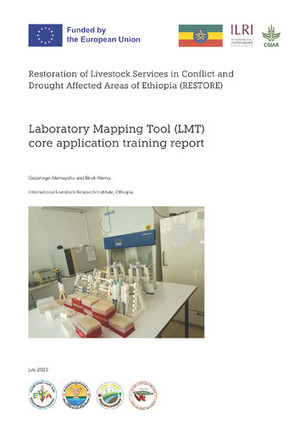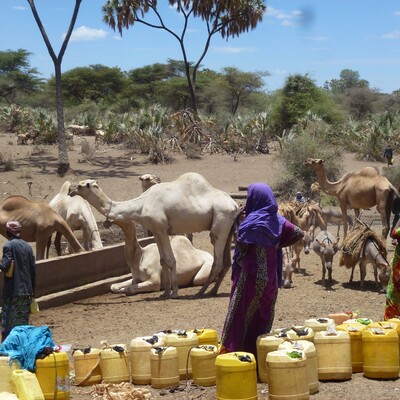
Celebrating achievements of women in livestock development at the African Women in Agricultural Research and Development (AWARD@10) event
ILRI staff attended the African Women in Agricultural Research and Development (AWARD) @ 10 event in Nairobi on 29 November 2018 (photo credit: ILRI/Judy Kimani).
The International Livestock Research Institute (ILRI) supports women in livestock development by ensuring that they benefit and are empowered through livestock. It does this by developing the capabilities of women to benefit from livestock production. Capabilities in this sense can range from developing capacities to access and use productivity technologies to developing aspirations for women to run livestock enterprises. This is in line with the institute’s strategic objective of increasing the capacity of ILRI and its key stakeholders to make better use of livestock science and investments for better lives through livestock. To enhance the capacity of its women scientists, ILRI has benefited from the African Women in Agricultural Research and Development (AWARD) program over the past 10 years.
AWARD works towards an inclusive, agriculture-driven prosperity for the African continent by strengthening the production and dissemination of more gender-responsive agricultural research and innovation. It invests in African scientists, research institutions, and agribusinesses so that they can deliver agricultural innovations that better respond to the needs and priorities of a diversity of women and men across Africa’s agricultural value chains. Several women currently working at ILRI have benefited from the AWARD fellowships and training programs which seek to strengthen research and leadership skills.
As we join AWARD in marking its tenth anniversary, we too celebrate the gains made by some of the women beneficiaries of the AWARD program at ILRI. Here are some of their reflections.
2018 AWARD fellows at ILRI
Julie Ojango, a scientist in quantitative genetics/animal breeding, joined the AWARD fellowship in 2018 with an aim to grow her skill set and rethink her life goals. She says that the program has greatly impacted her approach to both life and career and has had time, with the assistance of a mentor, to reflect on her goals and chart a purpose roadmap to achieve them. ‘I want to make an impact by helping women in developing nations to improve their livelihoods through effective resource mobilization. Through the AWARD program, I have been equipped to appreciate and work with different personalities gainfully and I look forward to empowering more women to achieve their life purpose,’, she says.
Silvia Alonso, a scientist/epidemiologist is also a 2018 AWARD fellow. She has undertaken a leadership course and a one-year mentoring program with the program. ‘Much of the mentoring involves self-reflection on best work practices. So, I believe I’ve made space for more planning and prioritization in my work which will enable me deliver more efficiently. I will also be mentoring a young female in agricultural research next year,’ she says.
Emily Ouma is a senior scientist/agricultural economist. She too joined AWARD in 2018. She has received training in scientific and proposal writing, gender responsive agricultural research for development and leadership and management. ‘The leadership skills I have acquired have so far been one of my greatest and ‘wow’ moments. I have acquired key competences of leadership including negotiation, emotional intelligence, appreciating and managing diversity, how to act assertively and strategic influencing among others. I intend to apply these in my research activities,team management, project management as well as in building and managing of partnerships’, notes Ouma.
Here are some reflections from past ILRI AWARD fellows.
AWARD alumni at ILRI
Annet Mulema, social scientist – gender:
‘I am a 2014 AWARD fellow and part of the Uganda AWARD alumni country chapter (UGAWARD). I acquired and developed good team building skills and this has helped me build strong teams and deliver on agreed outputs. I also acquired skills in scientific writing which had a good component on gender and gender analysis tools which I still use to collect data, write and publish manuscripts and briefs. Overall, the key benefits of being an AWARD fellow are becoming technically competent, confident, visible and better networked. I have applied these principles at ILRI in the effort to make the institute visible and produce quality products, besides mentoring colleagues and other team members. Receiving testimonies from my female and male colleagues gives me confidence that I have impacted them directly or indirectly and have helped them develop their careers both in CGIAR and outside CGIAR.’
Alessandra Galie, social scientist– gender
‘I have attended two AWARD leadership courses and am about to attend a third one. I find these courses particularly helpful because they address different aspects of leadership for instance self-reflection,interaction with teams and focus on the difficulties that women need to navigate in a gendered environment. I have now become more aware of the importance of leadership training to specifically target women with a focus on gender issues.
Personally, I also became more aware of some constraints I was facing, identified a trusted and fantastic mentor to help me establish a process to address these constraints, and started working on solutions. The process is slow but extremely helpful. I share these learnings not only with the women and men I mentor, but also with colleagues, friends and relatives who are upcoming leaders in their respective fields and are facing similar issues.’
Edna Mutua, scientist/anthropologist
‘I am a 2013 AWARD fellow and a member of the AWARD Kenya Chapter. My first year at the fellowship consisted of being mentored by a senior female scientist in my area of specialization and undertaking training in science writing and leadership. In the second year, I had the opportunity of mentoring a young female researcher to pass on the skills and knowledge acquired from the program.
I also undertook as part of the advanced science training, a short course on public sector monitoring and evaluation. Being an AWARD fellow has enabled me to define the career path I wanted to take, and the soft and science skills needed to develop to realize the goals. With the skills acquired, I am now able to do anthropological/gender studies on livestock vaccine adoption, a core research interest at ILRI.’
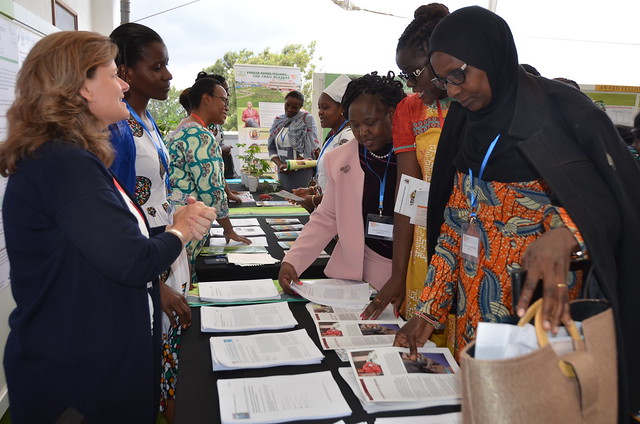 ILRI’s gender focal person Nicoline de Haan (left) introduces guests to the ILRI gender work at the AWARD@10 event on 29 November 2018 (photo credit: ILRI/ Judy Kimani).
ILRI’s gender focal person Nicoline de Haan (left) introduces guests to the ILRI gender work at the AWARD@10 event on 29 November 2018 (photo credit: ILRI/ Judy Kimani).
ILRI utilizes available avenues for empowering women working in the livestock sector and we are glad to have participated in the AWARD@10 celebrations, showcasing some of the institute’s output on gender.
Read more about AWARD fellowships
See more on ILRI livestock and gender unit
See more on ILRI gender related outputs






